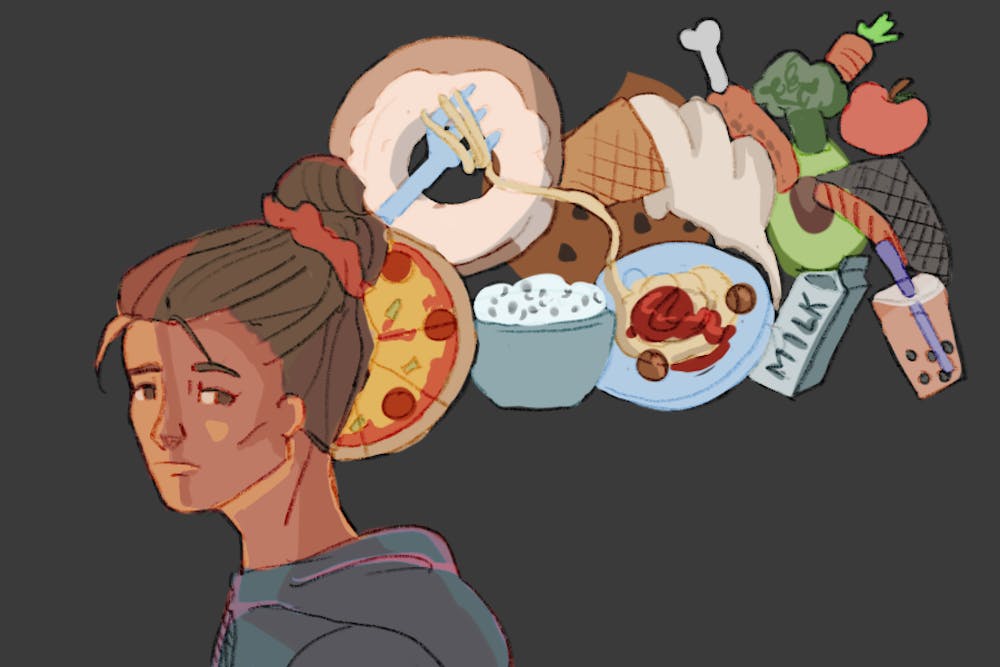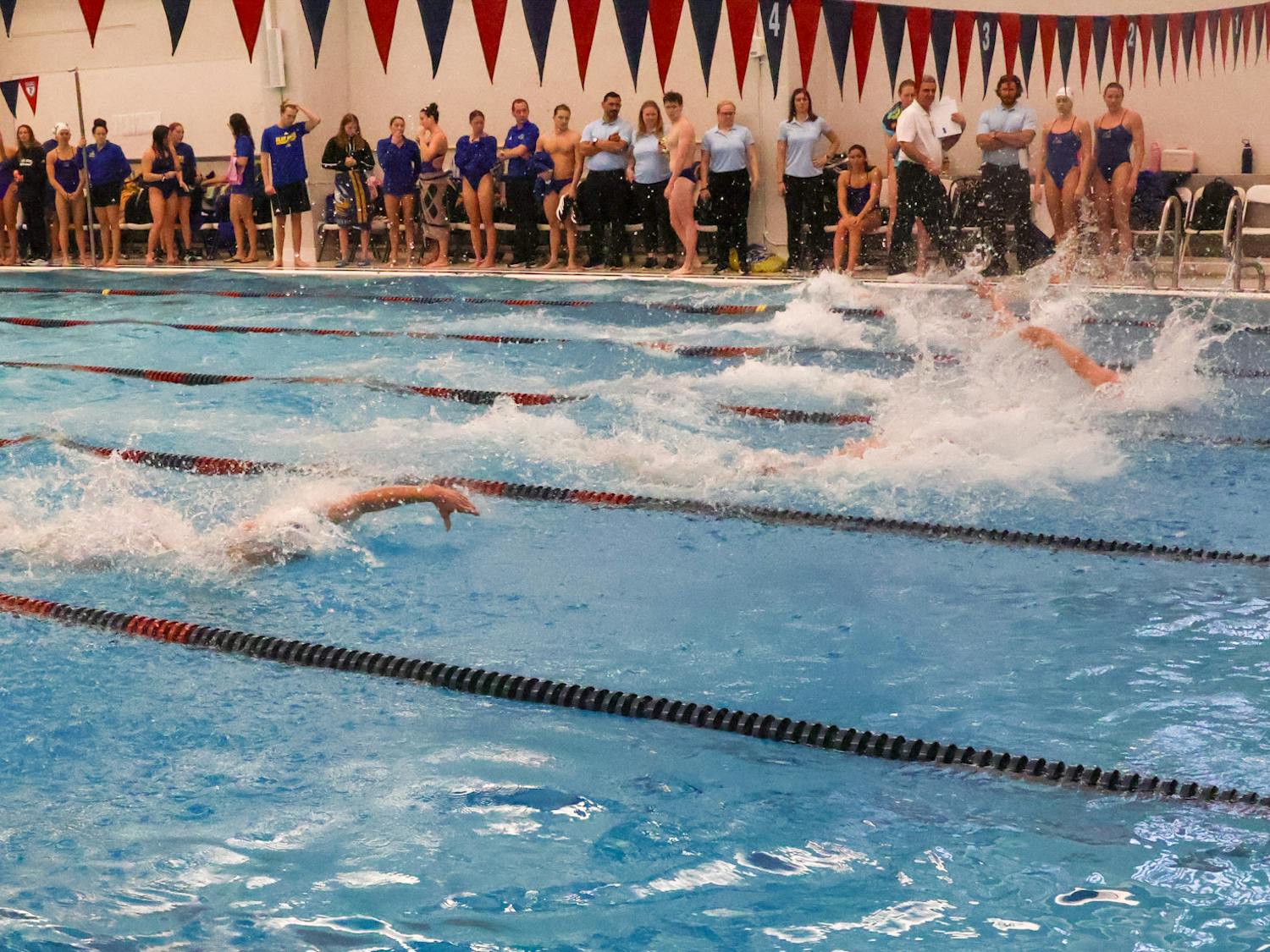It’s all too common to joke about potential weight gain and “stress eating” during quarantine, but such jokes can in fact be very triggering for those with eating disorders.
Oftentimes, disordered eating habits or unhealthy relationships with food primarily stem from a need for control over one's body or some other aspect of one's life. Particularly during a global pandemic, when arguably nothing is under control or stable, that need may be greater now more than ever. Nowadays, people find themselves more alone, with more indoor time and fewer social interactions, thereby facilitating anxious or disordered thoughts specifically around food. Being isolated and feeling lonely often translates to heightened thought fixation, such as negative thoughts regarding body image. In addition, the coronavirus pandemic has inevitably disarranged many routines, and of course, structured mealtimes and nutritious snacks are an essential component of these very routines that many people depend on.
For a while, it seemed like most people wouldn’t leave their homes for any reason except to visit grocery stores. Stocking up on groceries or easy access to favorite snacks can result in binging, or encourage the restrictive fear and avoidance of such behavior. Not to mention, living at home with parents often means a limited supply of “healthy” or “safe” foods, whereas living independently allows you to control your food intake and supply. And of course, most people are relying on social media to get through quarantine, and the presence of influencers and idealized body types, or “body goals,” is ubiquitous.
Food is meant to be enjoyed, but too often it’s feared instead. Some of my closest friends have struggled or continue to struggle with eating disorders, and I have spent a lot of time researching this topic in an effort to better empathize with and support them during quarantine. It’s important that we discuss the reality of eating disorders during quarantine, along with specific, concrete approaches to best support our loved ones. Here are seven tips I have come up with, through extensive research, observation, and experience:
- Never compare what you’re eating to what someone else is eating. If you don’t have an eating disorder, then you will never fully understand someone else’s relationship with food. Even if you do also struggle with eating, you still shouldn’t compare because just as each body is different, each manifestation of an eating disorder is different too.
- Don’t mind the social media outlets and news articles that portray an obsession with stress eating or gaining weight. Articles, books, videos, and blogs discussing “tips on avoiding weight gain during quarantine” can be very triggering for many. These perspectives merely fuel the diet culture and fatphobia that plague our society, without any regard for those struggling with a very real mental condition.
- You should not encourage someone to eat healthier or cleaner, as doing so can fuel destructive habits or mindsets. Of course, you’ve probably heard of the overstated phrase “eating in moderation.” This saying has actually helped my friends with their disordered eating, but I also believe it’s necessary to stress that all foods can be part of a nutritious diet. Labeling foods as “healthy” and “unhealthy” can prove toxic in the long term, because it elicits compulsive fear and avoidance often associated with disorders.
- Stop normalizing phrases with the term “binge,” such as “I’m going to binge-watch Netflix,” or “I’m feeling sad so I’m going to binge-eat.” These insensitive remarks not only trigger people who do struggle with food, but they also invalidate the all-consuming guilt, loss of control, and fear characteristic of common eating disorders.
- There’s no doubt that these are trying, unprecedented times, and many people often resort to consuming comfort foods — essentially “stress eating” or “emotional eating.” Especially during these circumstances, such behavior is very real and very normal, and we should never shame or discourage one another from seeking comfort in our favorite foods. If anything, it is healthy to let yourself stress eat from time to time; after all, we are literally experiencing an unprecedented worldwide pandemic, on top of a modern movement against systemic racism.
- Adding more structure to our daily lives amidst these unusual times is one way to bring back desired eating habits. Keep in mind, I mindfully avoid using phrases like “healthy habits” to deter from the mindset that “healthy” foods are the only way to be healthy. Having set mealtimes and snack times and eating at regular intervals, for example every 3-5 hours, is one possibility of structuring your routine.
- While this isn’t true for all, for many people, disordered eating tendencies thrive in social isolation situations. Another possible tip would be to encourage virtual social interactions, such as wine nights over FaceTime, Netflix party movie nights, or simply regular check-ins via text message.
I acknowledge that I am at fault too, because in the past I’ve taken for granted my positive relationship with food, but not everybody perceives eating as a pleasurable experience. Although indulging on the holidays is normalized, this experience differs greatly from the overeating struggles that some people face on a regular, even daily, basis.
Let’s also remember that eating disorders shouldn’t be viewed as a set-in-stone checklist, but rather as a spectrum, composed of a wide variety of symptoms and conditions. The National Eating Disorders Association has compiled a list of free or low-cost resources, specifically suited for the COVID-19 outbreak, and it also operates a helpline for additional support.
It’s okay if you struggle with your relationship with food, and it’s even more okay if your symptoms have worsened or just emerged during quarantine. In fact, a clinical psychology graduate student in my lab once said that in regards to progress and the course of any treatment, what matters isn’t your exact position on a graph — rather, it’s the overall trend that you’re heading towards. Put simply, recovery is very much an ongoing process. An imperfect relationship with food is very real and common, and particularly during challenging times, there’s nothing wrong with adjusting or even lowering the expectations you’ve set for yourself.

BRIDGET YU is a rising College junior from Los Angeles, CA studying Psychology. She plans to attend medical school and specialize in psychiatry. Her email address is bridgtyu@sas.upenn.edu.
Have opinions of your own you would like to share? Submit a guest column.









